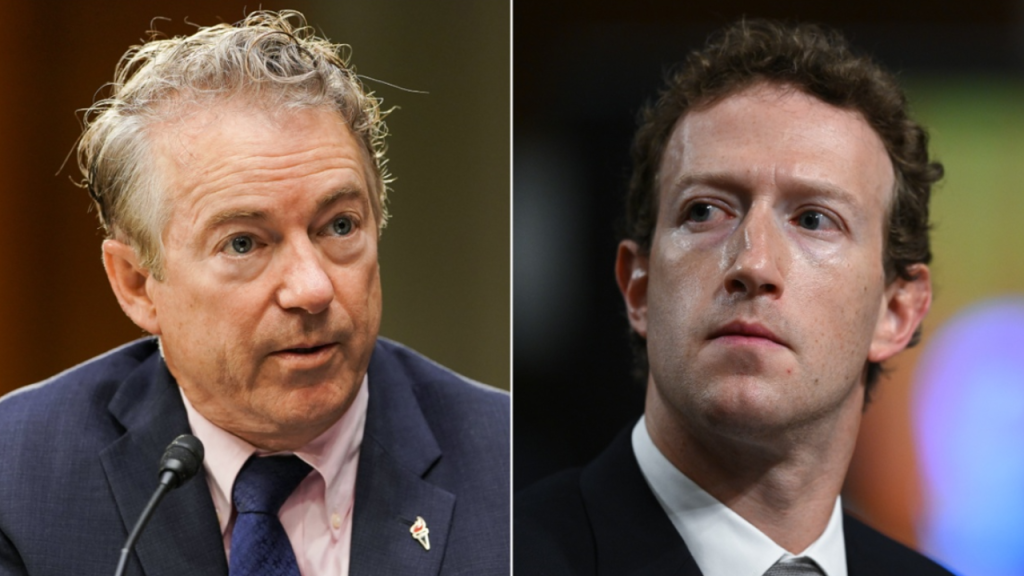The announcement by Meta, formerly Facebook, that it would end its controversial third-party fact-checking program and shift towards a community-driven approach to content moderation sparked a wave of celebratory reactions from conservatives on social media. Many viewed the decision as a significant victory for free speech and a direct consequence of conservative political pressure, particularly referencing the influence of former President Donald Trump. The prevailing sentiment was that Meta’s admission of overreach in its content moderation practices validated long-held conservative criticisms of alleged censorship and bias against right-leaning viewpoints.
Several prominent conservative figures took to social media platforms, particularly X (formerly Twitter), to express their satisfaction with Meta’s decision. Senator Rand Paul lauded the move as a “huge win for free speech,” while Lyndsey Fifield of the Independent Women’s Forum highlighted Meta’s intention to adopt a system similar to X’s community notes feature, suggesting this was a direct response to perceived bias in the previous fact-checking system. Abigail Jackson, communications director for Senator Josh Hawley, linked the decision directly to Trump’s electoral success, arguing that such a change would not have occurred without his influence. Journalist Jordan Schachtel echoed this sentiment, viewing the move as a tangible consequence of Trump’s impact, regardless of one’s opinion of his motives.
The celebratory tone continued with Breaking Points co-host Saagar Enjeti emphasizing the significance of Mark Zuckerberg’s announcement, viewing it as a clear indication of the impact of electoral outcomes on corporate policy. These reactions collectively point to a perception among conservatives that Meta’s decision represents a substantial shift in the online landscape, potentially leading to greater freedom of expression and a more balanced approach to content moderation. The repeated references to Trump’s influence underscore the belief that conservative political activism played a pivotal role in prompting this change.
Meta’s decision stems from admitted issues with its current content moderation practices, which executives acknowledge have “gone too far.” The company’s reliance on automated systems and third-party fact-checkers has resulted in the removal of content that did not violate its policies, prompting the need for a reevaluation. These concerns were exacerbated by criticisms of political bias, with conservatives frequently citing instances where they felt unfairly targeted. The high-profile controversy surrounding the New York Post’s reporting on Hunter Biden’s laptop served as a key example of this perceived bias, with Zuckerberg himself later admitting that the White House had pressured him to suppress the story.
Joel Kaplan, Meta’s chief global affairs officer, explained the rationale behind the change in an interview with Fox News, acknowledging that the current automated systems made “too many mistakes.” He emphasized the company’s ongoing commitment to moderating content related to terrorism, illegal drugs, and child sexual exploitation, but stressed the need for a more nuanced approach to other forms of content. Zuckerberg reinforced this message in his own announcement, highlighting the move of moderation teams from California to Texas, a decision he suggested would reduce perceived bias within the teams.
The shift towards a Community Notes system, mirroring X’s approach, is seen as a key element of Meta’s new strategy. This model allows users to provide contextual information and contribute to the evaluation of content, theoretically promoting a more decentralized and transparent moderation process. Zuckerberg framed this shift as a return to the company’s roots, emphasizing a renewed focus on reducing errors, simplifying policies, and fostering free expression. This move reflects a broader debate about the role and responsibilities of social media platforms in regulating online discourse and the delicate balance between combating misinformation and protecting free speech. The implications of Meta’s decision remain to be seen, but it undoubtedly marks a significant turning point in the ongoing discussion about content moderation in the digital age.

